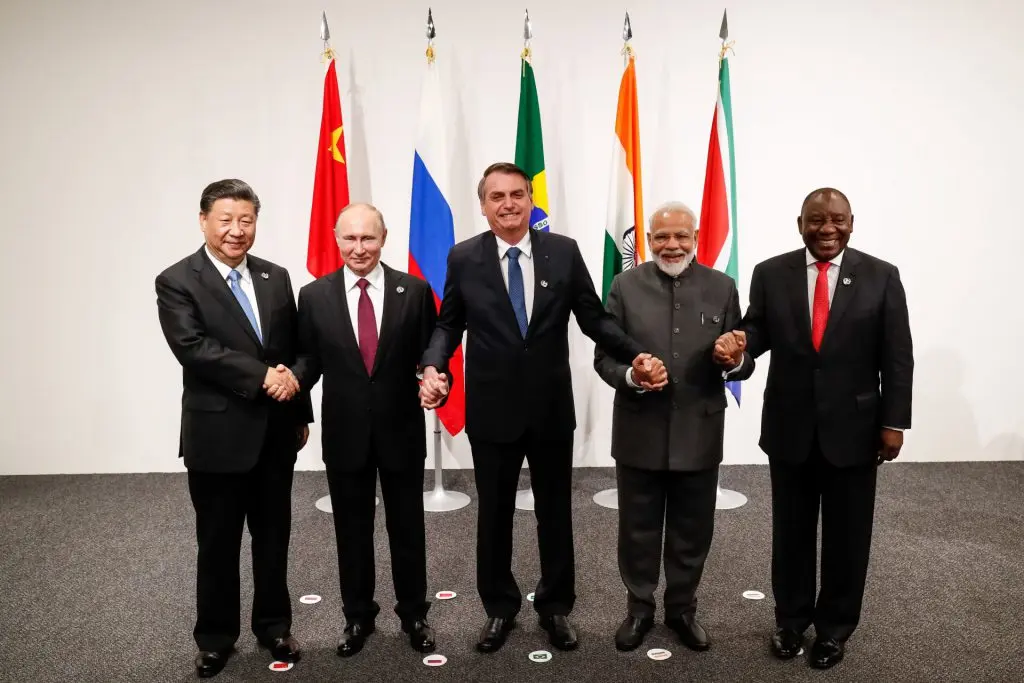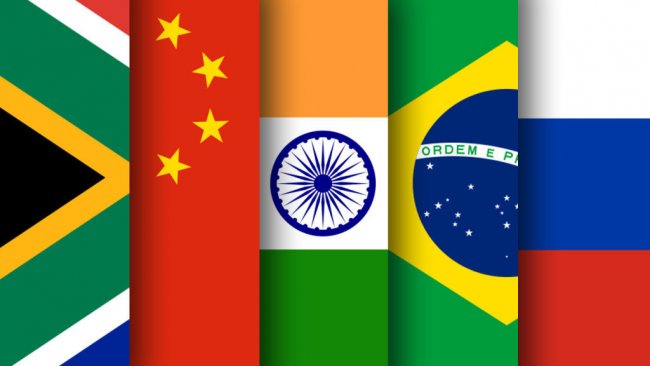Thirteen countries have officially applied to join the BRICS alliance, signaling a potential shift in the economic landscape. This decision, which could affect the position of the US dollar in international trade, was revealed ahead of the upcoming BRICS summit.
With an additional 22 nations who show interest, the world may be on the verge of a reconsideration of the global financial order.
The BRICS Club expands: who wants to join?
In the world of global finance, the BRICS alliance seems to have suddenly become very attractive. The 13 countries that have officially applied are United Arab Emirates (UAE), Saudi Arabia, Bangladesh, Venezuela, Argentina, Indonesia, Ethiopia, Bahrain, Mexico, Nigeria, Algeria, Egypt and Iran. If we add these countries to the 5 founders, we find that they are almost 5 billion people. Do you understand the earthquake that can be unleashed?
Goodbye Dollar, hello native currencies
What drives all these nations to knock on the BRICS door? The answer could lie in one word: autonomy. The main goal of these developing countries is to end dependence on the US dollar and trade in native currencies. In a world where “green” refers not only to the environment, but also to the color of American banknotes, this move could be seen as an attempt to “recycle” the global economy.
If all goes to plan (which, especially these days, is NEVER a given) we could see a dramatic change in the way the world does business. And I'm not just talking about a currency exchange at the local market.
The Johannesburg summit is a crossroads for the future
The next BRICS summit, scheduled for August 22-24 in Johannesburg, South Africa, is something of a “family reunion,” but with much more at stake. The decision to welcome the 13 countries or not will be taken jointly by the current members of the BRICS alliance, i.e Brazil, Russia, India, China and South Africa.
And as in any meeting there will be discussions, negotiations and maybe even some arguments over silver cutlery (metaphorically speaking, of course).

“Super BRICS”: a new financial order on the way?
A strong enlargement of the BRICS could really shift the current global balance, not only financial, taking away the control of the game from the West.
The fate of the US dollar depends on how BRICS handles global trade with other countries. If their native currencies become stronger with more widespread use, the US currency could go down the path of decline, or into a conflict to maintain the status quo.
How will it end? Will the BRICS “race” take the world from the monopoly of the “big bucks” to a rainbow of economic possibilities, or to the gray clouds of a head-on clash between two visions of the world?


